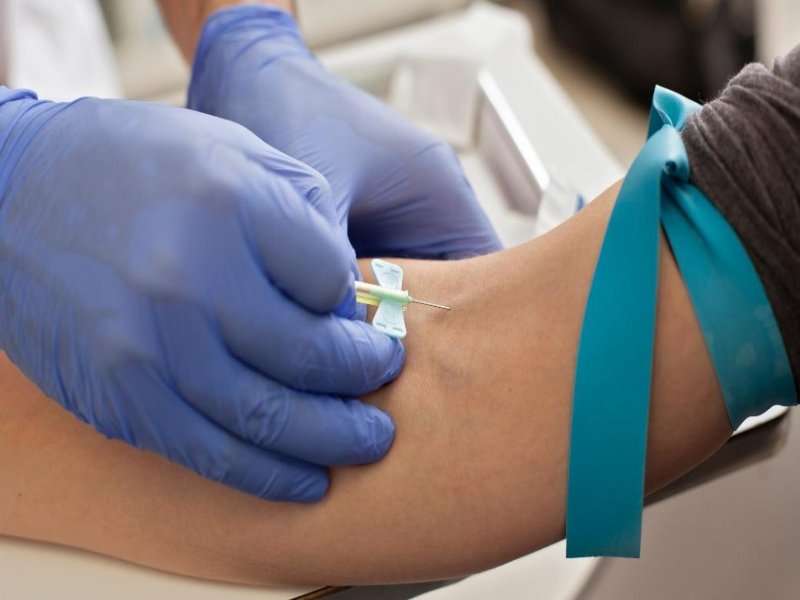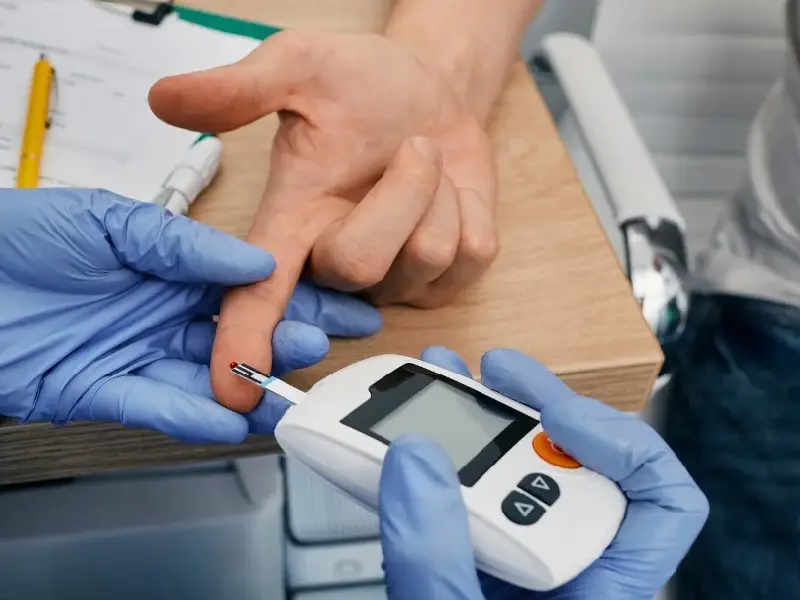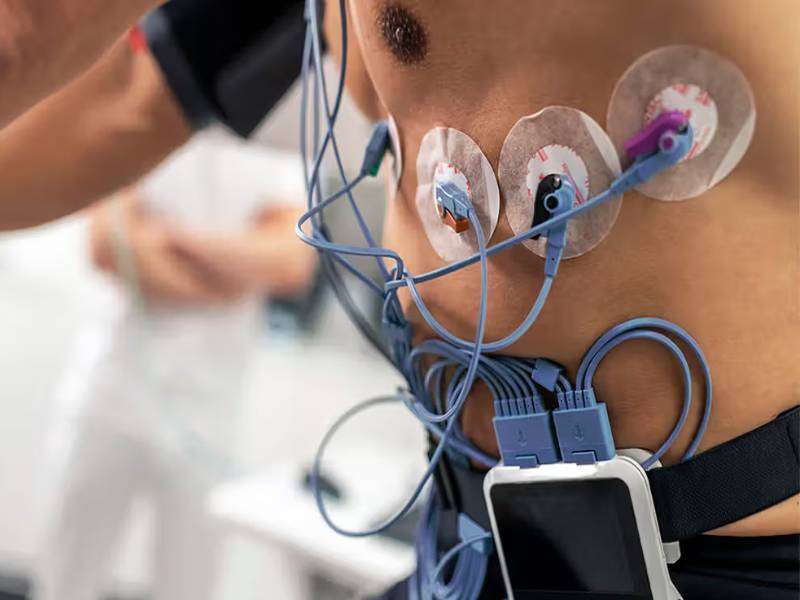
Heart disease remains one of the leading causes of death worldwide, but with early intervention, its impact can be minimized. At Dhanvantari Clinic, we offer comprehensive Cardiovascular Risk Assessment services to help identify potential risks early and prevent heart-related issues before they become life-threatening. Under the expert guidance of Dr. Soni A.K., an experienced General Physician & Surgeon, and Dr. Anish Kumar, a Family Physician, we provide personalized cardiovascular assessments tailored to your health profile. Understanding and managing cardiovascular risk is crucial for maintaining long-term health. Whether you are looking to understand your heart health better or you have a family history of heart disease, our clinic provides the tools and knowledge to take control of your heart health.
What is Cardiovascular Risk Assessment?
A Cardiovascular Risk Assessment is a series of medical tests and evaluations to assess an individual’s risk of developing heart disease or experiencing cardiovascular events like heart attacks, strokes, or heart failure. Risk factors such as high blood pressure, diabetes, high cholesterol, smoking, and family history of heart disease can significantly increase the likelihood of developing cardiovascular problems. The goal of a cardiovascular risk assessment is to identify these risk factors early and develop an actionable plan to mitigate them. At Dhanvantari Clinic, we use state-of-the-art diagnostic tools to evaluate your heart health and provide you with a comprehensive report of your cardiovascular risks.
Why is Cardiovascular Risk Assessment Important?
Heart disease often develops silently, without obvious symptoms, until it reaches an advanced stage. By the time symptoms like chest pain, shortness of breath, or fatigue appear, significant damage may have already occurred. Early detection through cardiovascular risk assessments can help prevent heart disease and ensure you lead a longer, healthier life. Factors like stress, lifestyle choices, and chronic conditions (such as hypertension and diabetes) can significantly contribute to heart disease. A proactive risk assessment helps identify these issues in their early stages, allowing for timely intervention.
Our Approach to Cardiovascular Risk Assessment:
At Dhanvantari Clinic, Dr. Soni A.K. and Dr. Anish Kumar take a personalized approach to assess cardiovascular health. We begin by understanding your medical history, lifestyle, and family background. We then carry out a series of tests and evaluations that can help gauge your risk for heart disease and other cardiovascular issues. Here’s how we assess cardiovascular health:

Comprehensive Health Evaluation:
We begin with a detailed review of your health history and risk factors. This includes your family history of heart disease, lifestyle factors (diet, physical activity, smoking, etc.), and any existing medical conditions like diabetes, hypertension, or high cholesterol. This information provides the foundation for understanding your cardiovascular risk.

Blood Pressure Measurement:
High blood pressure is one of the key contributors to heart disease. Dr. Soni A.K. and Dr. Anish Kumar will measure your blood pressure to determine whether you have hypertension or are at risk for developing it. If needed, we provide a management plan to keep your blood pressure under control.

Cholesterol and Lipid Profile Test:
A blood test that measures the levels of total cholesterol, LDL (bad cholesterol), HDL (good cholesterol), and triglycerides. High LDL levels and low HDL levels increase the risk of cardiovascular disease. We also check for abnormalities in your lipid profile, which can indicate a higher risk of heart disease.

Blood Sugar Test (for Diabetes):
Diabetes is a significant risk factor for heart disease. A fasting blood sugar test or an HbA1c test will help assess your blood sugar levels and determine if you are at risk for diabetes, which increases the likelihood of heart problems.

Body Mass Index (BMI) and Waist Circumference:
Obesity is linked to various cardiovascular problems, including high blood pressure, high cholesterol, and diabetes. By measuring your BMI and waist circumference, we can assess whether your weight is a contributing factor to your cardiovascular risk.

Electrocardiogram (ECG):
An ECG measures the electrical activity of your heart, helping us identify any abnormalities such as irregular heart rhythms or signs of heart attack. This test is non-invasive and provides valuable information about your heart’s overall health.

Stress Testing (If Required):
If you are at moderate to high risk for cardiovascular disease, we may recommend a stress test, where you exercise (on a treadmill or stationary bike) while being monitored for heart rate and blood pressure. This helps evaluate how well your heart performs under physical exertion and identifies potential issues such as coronary artery disease.

Advanced Imaging and Screening (if necessary):
In some cases, Dr. Soni A.K. and Dr. Anish Kumar may recommend advanced imaging studies such as an echocardiogram or coronary calcium scan to get a clearer view of your heart’s health, especially if you have a family history of heart disease or show signs of advanced cardiovascular risk.

Lifestyle Assessment:
Understanding your daily habits is crucial in managing cardiovascular health. We provide personalized lifestyle recommendations to improve diet, exercise, and stress management. These changes can significantly reduce your risk of heart disease and help you live a healthier, more active life.
Common Risk Factors for Heart Disease:
There are several known risk factors for cardiovascular disease, including:
- High Blood Pressure (Hypertension): Uncontrolled high blood pressure can damage the heart and blood vessels over time.
- High Cholesterol: Elevated levels of LDL (bad cholesterol) can lead to the formation of plaques in arteries, leading to heart disease.
- Diabetes: Diabetes increases the risk of heart disease due to high blood sugar levels, which can damage blood vessels.
- Smoking: Smoking damages the blood vessels and reduces oxygen levels in the body, increasing the risk of cardiovascular disease.
- Obesity: Excess weight strains the heart and increases the likelihood of developing high blood pressure and diabetes.
- Family History: A family history of heart disease can increase your risk of developing similar conditions.
- Physical Inactivity: Lack of physical exercise contributes to obesity and other risk factors for heart disease.
- Unhealthy Diet: Diets high in saturated fats, sodium, and processed foods can lead to high cholesterol, high blood pressure, and obesity.
- Stress: Chronic stress can contribute to heart disease through its impact on blood pressure and hormone levels.
- Age and Gender: The risk of heart disease increases with age, and men are generally at higher risk than women (though women’s risk increases post-menopause).
Treatment and Management of Cardiovascular Risk:
Once the assessment is complete, Dr. Soni A.K. and Dr. Anish Kumar will discuss the results with you and recommend a treatment plan based on your risk factors. Management may include:
- Medications: To control blood pressure, cholesterol, and blood sugar.
- Lifestyle Changes: Incorporating a heart-healthy diet, increasing physical activity, quitting smoking, and managing stress.
- Monitoring and Follow-up: Regular check-ups to track your progress and make necessary adjustments to your treatment plan.
Why Choose Dhanvantari Clinic for Cardiovascular Risk Assessment?
Expert Team:
Dr. Soni A.K. and Dr. Anish Kumar bring years of experience in managing cardiovascular health and providing personalized care. Their in-depth knowledge ensures accurate assessments and effective treatments.
Comprehensive Testing:
We offer a thorough, multi-faceted approach to evaluating your heart health, using state-of-the-art diagnostic tools and techniques.
Personalized Treatment Plans:
Your heart health is unique, and we tailor our treatment plans to address your specific needs and goals, ensuring the best possible outcomes.
Proactive Prevention:
Early intervention is key to preventing heart disease. Our cardiovascular risk assessments allow us to catch potential issues before they develop into serious conditions.
Schedule Your Cardiovascular Risk Assessment Today:
Don’t wait for symptoms to appear—take charge of your heart health today with a Cardiovascular Risk Assessment at Dhanvantari Clinic. Contact us to schedule an appointment with Dr. Soni A.K. or Dr. Anish Kumar and take the first step toward a healthier, heart-healthy life.
